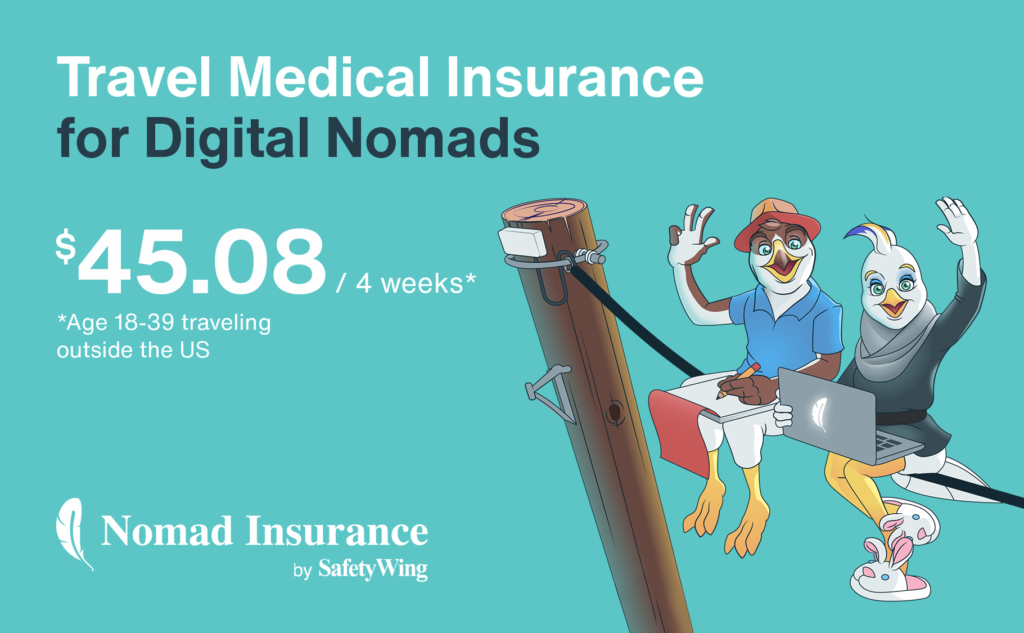Is it Safe to Live in Thailand?
Living in Thailand has become an increasingly popular choice for expats, digital nomads, and retirees in search of a tropical paradise with a low cost of living. However, safety is always a primary concern when relocating to a new country.
Let me tell you right away, I have never felt safer than anywhere else in the world. I am originally Austrian, so it isn’t unsafe there either, but I have travelled to Africa, North & South America, China, Australia and many other places. I felt unsafer in many of those places compared to Thailand. However, there are always a few things you need to keep in mind:
1. General Safety in Thailand
Thailand is generally considered a safe country for foreigners to live in. The majority of expats report feeling secure and welcome in their new home, with a low incidence of violence or crime targeting foreigners. However, as in any country, there are risks and potential hazards to be aware of.
2. Crime Rates and Personal Safety
Petty Crime and Scams
Although violent crime is relatively rare, petty crime such as pickpocketing and bag-snatching can occur in tourist areas. Be vigilant in crowded places and keep your belongings secure.
Scams are not uncommon, particularly in popular tourist destinations. Familiarize yourself with common scams, such as overpriced taxis or fraudulent tour packages, and always exercise caution when dealing with unfamiliar individuals or businesses.
Violent Crime
Violent crime against foreigners is infrequent, but it’s essential to take basic precautions to protect yourself. Avoid poorly lit or deserted areas late at night, and consider traveling with a friend or group when possible.
Home Security
When selecting a place to live in Thailand, prioritize secure housing options with gated communities, security guards, or surveillance systems. Ensure that doors and windows have adequate locks and avoid displaying valuables in plain sight.
3. Road Safety and Transportation
Traffic Accidents
Road safety in Thailand is a concern, with a high rate of traffic accidents. Exercise caution when driving or riding a motorbike, and always wear a helmet. Be mindful of local traffic customs, which may differ from your home country, and consider taking a driving course to familiarize yourself with Thai traffic rules.
Public Transportation
Public transportation in Thailand is generally safe and reliable. However, be aware of pickpockets in crowded buses or trains, and keep your belongings secure at all times. Avoid using unofficial taxis, and always negotiate fares upfront to avoid disputes.

4. Healthcare and Medical Facilities
Quality of Healthcare
Healthcare in Thailand is of high quality, particularly in larger cities such as Bangkok, where numerous international hospitals cater to foreigners. However, rural areas may have limited access to advanced medical care.
Health Insurance
It’s essential to have comprehensive health insurance when living in Thailand, as medical expenses can be costly for non-residents. Ensure that your policy covers a wide range of treatments, including emergency evacuation if necessary.
Common Health Concerns
When living in a tropical climate, be aware of common health concerns, such as mosquito-borne illnesses like dengue fever and malaria. Take precautions against insect bites and consult a doctor if you experience symptoms.
5. Natural Disasters and Climate Risks
Flooding
Thailand can experience flooding during the rainy season, particularly in low-lying areas and near rivers. Before choosing a place to live, research the local flood history and consider investing in flood insurance.
Earthquakes and Tsunamis
While Thailand is not located in a major earthquake zone, minor tremors can occur. Additionally, coastal areas may be at risk of tsunamis in the unlikely event of a significant undersea earthquake. Stay informed about potential risks and have an emergency plan in place.
Air Pollution
Air pollution, particularly during the burning season, can be a health concern for those living in Thailand. Monitor air quality levels and consider investing in an air purifier for your home.
6. Political Stability and Protests
While Thailand has a history of political instability, the situation has remained relatively calm in recent years. Protests can occur, but they are usually peaceful and localized. Stay informed about the political climate and avoid participating in or being near demonstrations.
7. Cultural Integration and Language Barrier
Embracing Thai culture and learning the local language can significantly enhance your safety and overall experience. Thai people are known for their friendliness and respect towards foreigners who make an effort to adapt. By learning basic Thai phrases and understanding cultural norms, you’ll be better equipped to navigate potential challenges and establish a strong network of local friends and contacts.
8. Safety Tips for Digital Nomads
For digital nomads, safeguarding your electronic devices and sensitive information is crucial. Use strong passwords, enable two-factor authentication, and utilize a VPN to protect your privacy online. Be cautious when using public Wi-Fi networks, as they can be vulnerable to hackers, and consider investing in a mobile hotspot for a more secure connection.
9. Staying Healthy in the Thai Climate
Adjusting to Thailand’s tropical climate can be a challenge for some newcomers. Stay hydrated, wear sunscreen, and dress appropriately for the heat to maintain your well-being. Be cautious of street food hygiene standards, and gradually introduce local dishes into your diet to avoid digestive issues.
10. Conclusion
Overall, Thailand offers a safe and welcoming environment for expats and retirees. While there are potential risks and hazards to be aware of, most can be mitigated through informed decision-making and taking sensible precautions. By considering the factors outlined in this article, you can make a well-informed decision about whether living in Thailand is the right choice for you.
11. FAQs
Q1: Is Thailand safe for solo female travelers?
A: Yes, Thailand is generally safe for solo female travelers. However, it’s essential to take basic safety precautions, such as avoiding poorly lit areas at night and using reputable transportation services.
Q2: How can I avoid scams in Thailand?
A: Familiarize yourself with common scams, use reputable service providers, and always exercise caution when dealing with unfamiliar individuals or businesses.
Q3: Are Thai hospitals equipped to handle emergencies?
A: Yes, hospitals in major cities like Bangkok are well-equipped to handle emergencies. However, rural areas may have limited access to advanced medical care.
Q4: What measures can I take to protect my home from burglaries in Thailand?
A: Opt for secure housing options, install adequate locks on doors and windows, and avoid displaying valuables in plain sight.
Q5: How can I stay informed about the political situation in Thailand?
A: Follow local news sources and stay connected with the expat community to stay informed about any developments in Thailand’s political climate.

